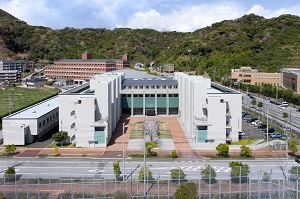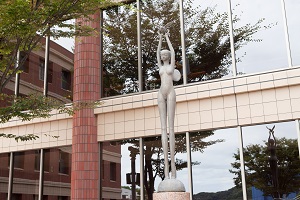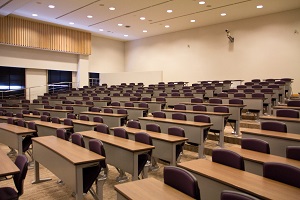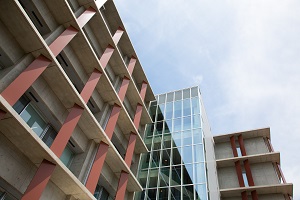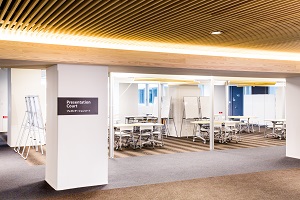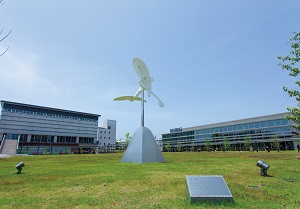本文
Message from the President
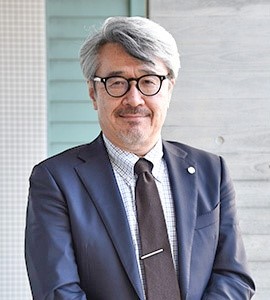
President Shigeki Koda
I assumed my present position of President of the University of Kochi on April 1, 2023. Until the end of March, I served as the Deputy Director of the National Institute of Occupational Safety and Health (Japan NIOSH), and worked on health issues for workers, considering government policies.
My academic background is in public health and social medicine. I have a medical doctor's license, but rather than working as a clinical physician, I have been pursuing disease prevention measures, and health maintenance and promotion in the communities and worksites. I feel a sense of affinity for the University of Kochi, which has dedicated itself to the development and revitalization of local culture, and has been working on Health & Welfare Science for the residents of the region. I support the university's principles, mission, and basic policies.
Having been appointed as President of this University for the next four years, I wish to briefly elaborate my convictions.
Currently, universities are facing multiple challenges. While many universities and other institutions of higher education have been established over the last decades in Japan, the number of children is decreasing, and there is a strong sense of crisis regarding the survival of universities. Furthermore, the COVID-19 pandemic, during which face-to-face education became increasingly difficult, has forced us to reconsider traditional higher education itself, including effective educational approaches utilizing IT and digital technologies. It remains crucial to promote the strengths of our university and the advantages of learning and personal growth at our institution, as well as benefits after graduation. This requires cooperation among faculty and staff, and I am determined to take the lead in this effort.
First, regarding student education, the University of Kochi offers a wide range of educational and practical programs that directly address the needs of the local community, providing students with opportunities to propose appropriate solutions. Furthermore, in today's internet-driven society where IT and digital technologies take the lead, accurate information literacy, fair information judgment, and advanced information security are required. Therefore, through education at the undergraduate and graduate levels, I aim to equip students with the ability to obtain and understand balanced information on scientific knowledge and technologies, and to acquire skills that can be utilized in the local community after graduation.
Next, regarding research and social contribution, I aspire to make the University of Kochi a learning institution that contributes to Kochi Prefecture and its residents by promoting Digital Transformation (DX) and implementing the university's strengths and research outcomes. In Japan, where serious population aging is progressing, Kochi Prefecture with its wide range of mountainous areas, in particular. faces the challenge of efficiently providing services to improve the health and welfare of residents in these areas. Through education and research activities at our university, I aim to foster individuals who can actively engage in the DX of information related to the health, medical care, and welfare of Kochi Prefecture’s residents, and I aim to establish a research environment that can provide services to enhance their health and welfare. To achieve this, I will explore collaborations with the Kochi Prefectural Government, Kochi prefectural administration municipalities, private companies, and other universities in the prefecture. I believe that this will not only enhance our research capabilities and social contributions to the region but also lead to Innovative Creation (IC), that is activities and projects originating from the University of Kochi. Considering the future of the University of Kochi, I expect DX and IC to be crucial keywords.
The University of Kochi has established connections with numerous overseas partner institutions and has actively engaged in accepting international students and sending exchange students abroad. Additionally, another strength of our university is the high number of self-supported international students from Asia, such as South Korea and China. It is natural for ambitious young individuals to have the desire to study abroad and acquire cutting-edge scientific knowledge and technology know-how, with the intention of applying these in their home countries. We are pleased to see that our university's efforts in promoting the development and revitalization of regional culture, as well as Health & Welfare Science, have received high recognition internationally. Accepting foreign students from Asia has led to the deepening of international exchange and also is a significant point of attraction from the perspective of globalizing the University of Kochi.
Lastly, the social environment surrounding universities is rapidly changing, and for the University of Kochi to fulfill its mission as a public university, it is necessary to strengthen its governance functions. First and foremost, it is essential for university personnel to adhere to regulations, guidelines, and social norms, and to ensure thorough information disclosure regarding university management, education, research, and social contributions. It is also crucial to anticipate and implement risk management for potential crises and disasters that may occur at the university. Furthermore, it is important to continuously assess whether the university is fulfilling its accountability to key stakeholders, including Kochi Prefecture and its residents, and whether it withstands evaluations from both internal and external sources, demonstrating its adaptability to a sustainable and diverse society. While the University of Kochi has been working on advancing its institutional research functions and enhancing faculty development and staff development, we aim to further secure the fulfillment of our university's mission by flexibly considering personnel, budget, and organizational structure, and striving to establish an environment and foundation that strengthen governance functions.

